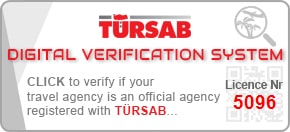
How to Detect Cancer Early?
Early cancer detection is essential for enhancing treatment results and raising survival rates. Early detection and prompt intervention are crucial since many cancer types are easier to treat. Turkey has developed into a global center for people looking for trustworthy and reasonably priced cancer diagnosis choices by fusing cutting-edge medical technology with reasonably priced healthcare.
Why Early Cancer Detection is Important
In order to identify cancer before it spreads or gets worse, early detection is essential. Early treatment is frequently easier, less intrusive, and more successful. Patients benefit from improved health outcomes, lower treatment costs, and an overall higher quality of life as a result. Early cancer detection depends on routine screenings and knowledge of warning indicators.
Recognizing the Warning Signs
While symptoms vary by cancer type, some common signs to watch for include:
- Unexplained weight loss.
- Persistent fatigue or weakness.
- Unusual lumps or swelling.
- Changes in skin appearance, such as moles or discoloration.
- Persistent cough, hoarseness, or difficulty swallowing.
- Chronic pain, especially in the back or abdomen.
If these symptoms persist, it’s essential to consult a doctor promptly. Early action can make a significant difference in cancer diagnosis and treatment success.
Importance of Regular Cancer Screenings
Routine screenings are key to detecting cancer before symptoms arise. They enable doctors to identify abnormalities early and intervene quickly. Common screening tests include:
- Mammograms: It is advised that women get checked for breast cancer, particularly if they are over 40 or have a family history of the condition.
- Pap Smears and HPV Testing: Essential for detecting cervical cancer in women, these tests identify precancerous changes in the cervix.
- Colonoscopy: A gold standard for colorectal cancer detection, particularly for individuals over 50 or those with a family history of colon cancer.
- Low-Dose CT Scans: Effective for detecting lung cancer in high-risk individuals, such as long-term smokers.
- PSA Blood Tests: Used in screening for prostate cancer, especially in men over 50 or with a family history.
- Skin Examinations: Regular checks for unusual moles or skin changes can help detect melanoma early.
Cancer Risk Factors to Monitor
Understanding your risk factors is key to taking proactive steps toward prevention and early diagnosis. Factors that increase cancer risk include:
- Family History: Individuals with a history of cancer in close relatives are at higher risk.
- Lifestyle Choices: Smoking, excessive alcohol consumption, poor diet, and lack of exercise can contribute to cancer development.
- Age: The risk of many cancers increases with age, particularly after
By tailoring cancer screenings to individual risk factors, healthcare providers can offer personalized and effective diagnostic plans.
Preventive Measures for Cancer
Adopting healthy habits can significantly lower your risk of developing cancer. Steps to consider include:
- Maintaining a Healthy Diet: Consume a nutritious, well-balanced diet rich in fruits, vegetables.
- Regular Exercise: Being active lowers the risk of several cancers and aids in maintaining a healthy weight.
- Avoiding Tobacco and Alcohol: Both are linked to several types of cancer.
- Sun Protection: To avoid skin cancer, wear sunscreen and limit your exposure to the sun.
- Vaccinations: Vaccines like HPV and Hepatitis B can help prevent cervical and liver cancers.
Prevention and early cancer diagnosis work hand-in-hand to ensure better health outcomes.
Advanced Cancer Diagnostic Technologies
Innovative tools are making cancer diagnosis more accurate and accessible. Technologies like liquid biopsies and genetic testing offer early detection with minimal invasiveness. Advanced imaging methods, including 3D mammography and PET scans, are now widely available, providing detailed insights into potential cancer sites.
Cancer Diagnosis and Costs in Turkey
Turkey is a global leader in advanced cancer diagnosis, offering top-notch facilities and skilled professionals. To ensure a seamless journey, hospitals offer extensive packages that include diagnostic testing, consultations, and even travel support. Turkish facilities, outfitted with cutting-edge instruments such as PET-CT scanners and robotic systems, provide accurate and timely detection.
For those looking for quality care at a reasonable price, Turkey offers exceptional value with world-class expertise.
Conclusion
Early cancer detection saves lives, reduces treatment costs, and improves recovery outcomes. You may take charge of your health by being mindful of your symptoms, getting frequent checkups, and taking preventative action. Patients from all over the world choose Turkey because of its sophisticated healthcare system and reasonably priced cancer diagnosis services. Partner with Istanbul Med Assist to ensure a smooth and supportive journey toward a healthier future.
Cancer Screening Plus Checkup



